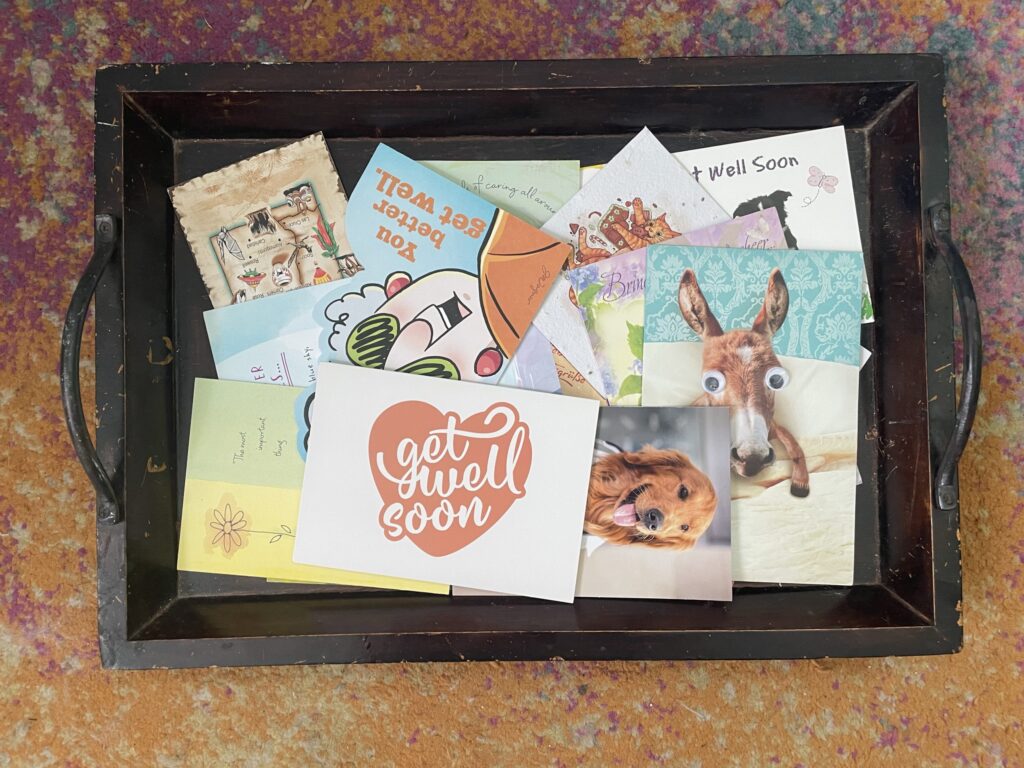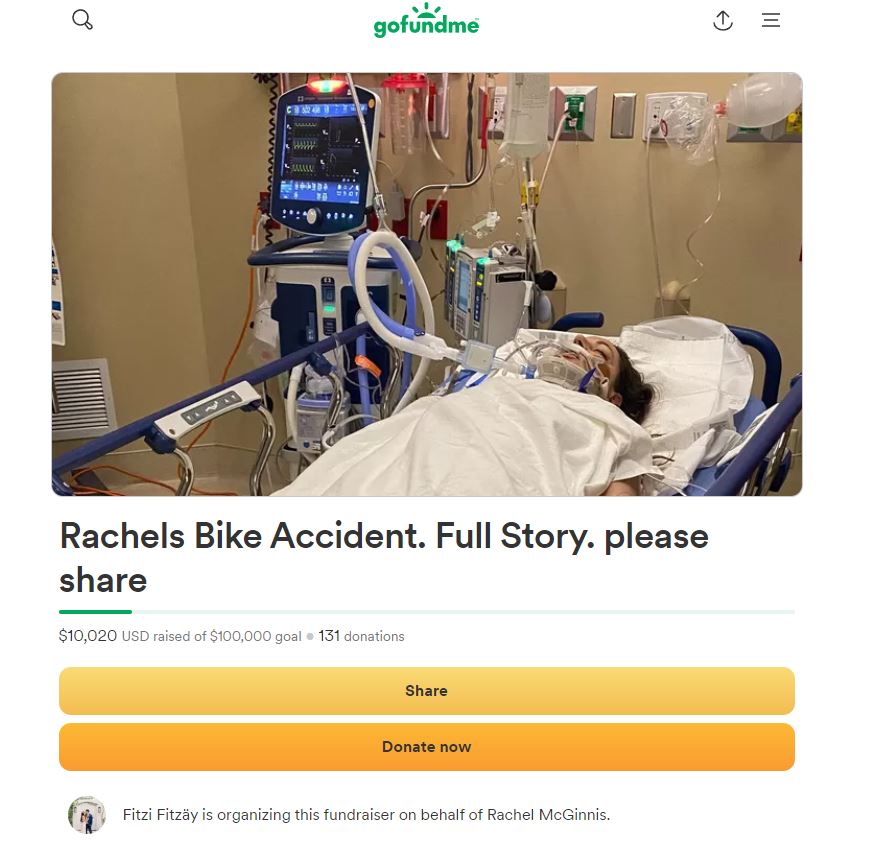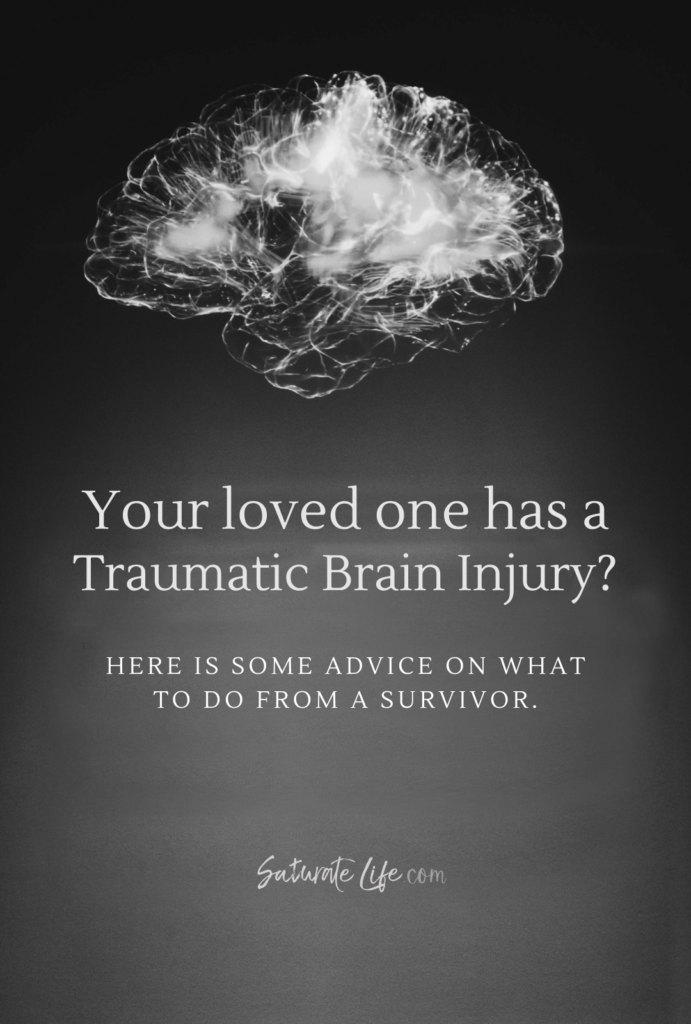Traumatic Brain Injury (TBI) is best taken care of in the hospital. The nursing staff will the the best people to help those with trauma. But you care. The person those angels are caring for is your loved one. You knew them before the angels met them, you will stay with them after. Their trauma now extends to you.
I am a TBI survivor. Here are some things my loved ones did, or I wish they would have done that would help relieve stress induced by the trauma. I’m not a doctor or therapist so best to talk to all of them on what they suggest. This is what I went through and made note helped me. Recovery takes time… for everyone.
Journal what is occurring day to day.
Part of having a severe TBI is having no memory for an extended period of time. Whether for your personal record or to be able to tell them how each and every day goes it’s nice to journal day to day experiences during the initial recovery process. I have a 2 week blank of my habits or antics. I have been told some things from my loved ones but there is no record of these events. Only verbal stories.
Okay to take photos and videos but don’t share
It’s okay to take pics and videos. But absolutely store them somewhere other than the app on the phone and don’t show to the victim unless requested. I’ve been told stories how I was. Ultimately, I don’t want to see that. That’s a stranger with my face and it’s traumatizing if I gain access to remember.
Don’t share excessively with social media. Not every minute step or potentially embarrassing stories. Flip the subject to yourself. Would you like every body function shared on the inernet? Nuh-uh. They won’t either. My husband did it right. Mostly when he shared to social media the photos were gentle moments. People know what you and your loved one going through is not a cakewalk. But what he showed was was him holding my hand or someone is helping me braid my long hair. Simple caring moments but clearly in a hospital showing I’m still human and he still loved me.

Collect the incoming love
Thank you for all the cards and incoming love! I still have them all and look at them when I’m having a stressful day. They were first sweeping in when I don’t have memory. Keep the return addresses for all the incoming love and care being mailed. I sent thank you cards in return to give some indication of my recovery. I needed the reminder of how loved I am. It is a great reminder.
Find a way to take care of the home
The home still needs to run. I was so fortunate that my parents came in to save the home, help take care of my sweet kitties, be parents to their son in law, and other day to day necessities. Those don’t get put on pause. Help with the home. You’re probably stressed too and cleaning and doing tasks helps reduce stress on your part.1 Mom organized my kitchen, dad did some minor repairs I was neglecting. They’re wonderful.
Be Medical Representative
They cannot represent themselves
You are the person who knows your loved one the best. Do they have any allergies? Would they be okay with certain medical necessity? Are they on any prescriptions? You’re their voice when theirs is not able to communicate. I couldn’t tell my doctors that I am lactose intolerant but my parents could. Husband could bring my prescriptions I was very good about taking nightly, I couldn’t. I was fortunate enough to have representatives for my medical care.

Take notes for present and future recovery
This is further into the medical representative area but take notes what doctors review your loved one’s medical tests. Don’t just listen; write it down for the records. It’s okay to be very obvious with a notebook that you’re making notes. Asking for them to reiterate to be able to write it down clearly. Ask for copies of all tests including MRI and Cat Scans. It will help with the recovery process across the board. My neurologist is not the same one outside of the hospital as inside. I no longer only have a primary care doctor. I have a neurologist, psychiatrist, audiologist, physical therapist, the list goes on. Ugh… take notes.
Keep a hefty file binder for all the paperwork/bills
This is something my mom did. She invested in one a hefty accordion file binder. Something like this from amazon. My accident was in the American healthcare system. I give no fault to the hospital staff, they were wonderful. The current billing system is not good for recovery. Having this binder to keep all the paperwork and bills in order was extremely helpful. I can more easily reference what was paid, what needs to be paid; itemized bills. It goes on.
Start a GoFundMe
This is for American system; start a go fund me. Start early when hearts are open. Care for TBI goes further than the first two weeks in the hospital and money is all any of these places really want. Tell your story with all the love and heart. This is the only place to share more extreme photos just for reference of how intense this injury really is.

Click here for an example of mine. My husband wrote it. I cry whenever I re-read it. A huge thank you to anyone reading who donated to the gofundme for my medical expenses. I would not be able to function without some assistance to pay the deductible and after care bills. To reiterate, donations are still valued. The huge bulk of the bills occurred in Oct/Nov everything was reset Jan 01 and the follow up testing to see the recovery progress is not already paid for since this year’s deductible is not paid. Deductibles are high. Unreasonably high especially for the high monthly payments.
I have extreme opinions about the American healthcare system before my accident that solidified afterwards. To summarize these opinions: When extreme medical care is undoubtedly necessary, people are okay with donating money for those bills. It would be better if people didn’t have to stress about the financials when in recovery. I would be content and happy knowing my taxpayer money was going to help fellow Americans with medical necessities.
Your love goes a long way for those you care about.
Cry your heart out. Reach out for the extended helping hands. You are helping someone else and it’s okay that you need help too. You’re managing a big project in a field you don’t understand.
I’m grateful for the love you extend. Take care.
Rachel McG

- Aso Y, Yamaoka K, Nemoto A, Naganuma Y, Saito M. Effectiveness of a ‘Workshop on Decluttering and Organising’ programme for teens and middle-aged adults with difficulty decluttering: a study protocol of an open-label, randomised, parallel-group, superiority trial in Japan. BMJ Open. 2017 Jun 10;7(6):e014687. doi: 10.1136/bmjopen-2016-014687. PMID: 28601822; PMCID: PMC5541631. Click here for the study


